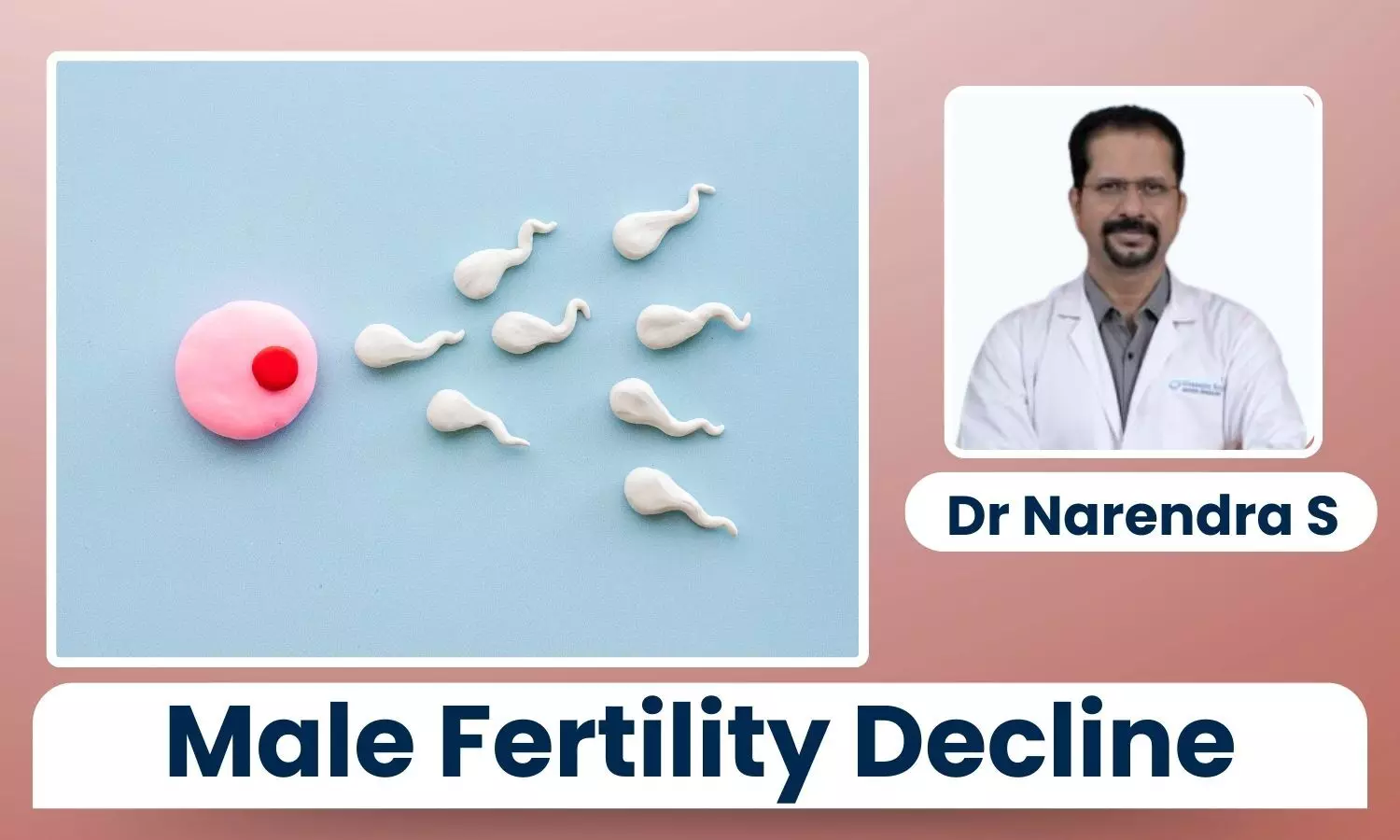Male Fertility Decline: The Urological Perspective - Dr Narendra S

Conversations about infertility usually highlight women, but men form an equal part of the picture. Male fertility has been declining across the world, and the same trend is being observed in India.
For couples trying to conceive, understanding the male contribution is essential. Fertility is not only about sperm counts; it also reflects overall health, lifestyle, and in some cases, underlying medical problems.
Why Male Fertility Declines
Male fertility depends on both the number and quality of sperm. A fall in either makes conception harder. Several reasons contribute to this decline:
Lifestyle factors: Sedentary routines, long hours at workstations, disturbed sleep cycles, and stress affect hormones and sperm health.
Environmental exposures: Heat, radiation, pesticides, and heavy metals harm sperm. Prolonged laptop use on the lap or frequent use of hot tubs can raise scrotal temperature and interfere with production.
Medical conditions: Diabetes, obesity, varicocele, infections, and hormonal disorders can reduce fertility. Some genetic conditions also affect sperm development.
Substance use: Smoking, alcohol, and recreational drugs lower sperm quality and increase DNA damage.
Role of the Urologist
Men often assume fertility problems stem from their partner and delay medical consultation. Evaluation of the male partner is important and usually begins with a detailed medical history and semen analysis, which measures sperm count, movement, and shape.
Sometimes, extra tests are needed. Hormones may be checked, an ultrasound can look for varicocele, and genetic tests might be done if necessary. These checks help find problems that can be treated, rather than just confirming a low sperm count.
Warning Signs That Need Attention
Certain signs should not be overlooked, as they can point to more serious problems:
• Erectile or ejaculatory difficulties
• Swelling, pain, or prominent veins in the testicles
• Low energy, reduced sexual desire, or loss of muscle mass
• A history of undescended testes in childhood or past genital surgeries
Getting medical attention for these issues early can help protect fertility and overall health.
Treatment Options
Many causes of male infertility can be managed. Simple lifestyle changes losing weight, staying active, quitting smoking, and cutting back on alcohol—form the first step. Surgery to correct a varicocele can improve sperm quality, hormone treatments help in certain cases, and infections need quick treatment.
When further assistance is required, advanced reproductive techniques provide solutions. Intrauterine insemination (IUI), in vitro fertilisation (IVF), and intracytoplasmic sperm injection (ICSI) have made conception possible even in cases of very low sperm counts.
When no sperm is found in the ejaculate, doctors may be able to retrieve sperm through a simple procedure for use in fertility treatment.
Link to General Health
Failing sperm health often reflects the broader health of men. Obesity, diabetes, high blood pressure, and early heart problems can affect sperm quality. Male infertility may serve as an early warning for these health issues, making medical evaluation important.
Key Takeaway for Men and Families
Male infertility should not be seen as a matter of fault. It is a medical condition, much like diabetes or hypertension, and needs recognition and treatment. Delays caused by stigma or silence often make matters worse.
Addressing lifestyle factors, undergoing timely evaluation, and following treatment can improve fertility and long-term well-being.
Infertility affects couples together, and acknowledging the male role is an important step toward finding solutions. Protecting reproductive health is also a way of protecting overall health, and with the right guidance, most couples can move forward with hope.
Disclaimer: The views expressed in this article are of the author and not of Health Dialogues. The Editorial/Content team of Health Dialogues has not contributed to the writing/editing/packaging of this article.


